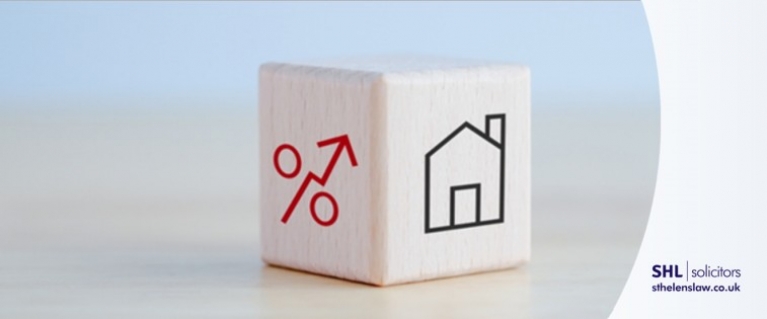Worried about your mortgage repayments?
That’s you, and about 25 million other people living in the UK.
Last month, the Bank of England (BoE) increased the base rate for the eleventh consecutive time since December 2021 – raising it by 0.25 percentage points, from 4% to 4.25%. And as a result, most mortgage holders are – quite rightly – becoming increasingly concerned.
What does this latest hike mean for your finances? Is it time to remortgage? Or a case of better the devil you know? Here we take a closer look.
Will the hike in base rate affect my mortgage?
In short, it depends on the type of mortgage you have.
If you’re on a fixed mortgage rate, nothing will change – and you don’t need to do anything. Your interest rate and monthly payments will stay the same until the end of your fixed deal.
If you’re not on a fixed mortgage rate, things are a little more complicated.
- Tracker mortgages
Unfortunately, base rate trackers do what they say on the tin.
They directly track or follow the base rate. Which means, if you’re one of the 850,000 properties currently on this type of mortgage, your monthly payments will rise by 0.25%
This may not sound like a lot. But to give you a real example – if your current rate is 5%, a rise to 5.25% will add £21 a month to a £150,000 repayment mortgage, with 20 years remaining. And of course, the bigger your mortgage (and the longer the term), the bigger the numbers will be.
- Standard Variable Rate (SVR) mortgages
The latest hike will also be a blow for the 2.2 million people on a variable rate.
With this type of mortgage, the change in your monthly repayment will be at your lender’s discretion. Most will go up, though not necessarily by the full 0.25%. And some lenders may take a while to work out what the base rate change means for their members and announce their plans.
What about new fixed-rate mortgages?
Here’s the good news. New fixed-rate mortgages will be largely unaffected by this latest increase in the base rate.
Why? Because (mercifully!) the current BoE base rate doesn’t directly affect the cost of a new mortgage. Mortgages are priced depending on several different factors, including the level of risk, the lender’s profit margins and – most importantly – where they source their funding.
Most lenders secure ‘fixed rate’ money via the money market. They have access to two and five-year deals, and the cost of the money is called the SWAP rate.
The SWAP rate is determined by where the market believes interest rates will go over the selected time period. So whilst the base rate might go up in the short term, if the view is that inflation will slow down and interest rates will fall, the SWAP rate may be lower than the base rate.
It may sound a bit confusing. But as a mortgage holder, all you really need to know is that currently, the 5-year SWAP rate is 4% – down from its high of 5.3% last year. And as a result, despite the base rate continuing to rise, new mortgage rates for 2023 are expected to stay around the 4% mark.
Should you remortgage?
This is an incredibly tough call, and everyone’s circumstances are different.
If your fixed-rate mortgage has expired or you’re currently on a tracker or SVR mortgage, remortgaging could certainly help you to save money in the short term.
Further interest rate hikes have been predicted for 2023. In fact, there are concerns that the BoE may need to raise the base rate more aggressively to combat inflation – meaning it could reach as high as 4.6% by August. But of course, it’s impossible to know for certain what will happen.
As we explained above, new fixed-rate deals haven’t been affected by the increased base rate – which means, it’s not too late to take advantage of these. However, keep in mind that by doing so, you’re locking into a rate that could be uncompetitive by the end of the year.
Our previous blog ‘Should I remortgage now or wait?’ explores this dilemma in more detail. But ultimately, the decision comes down to three questions:
- Is your current mortgage rate affordable?
- How much do you value the certainty of a fixed deal?
- How much of a gamble are you willing to take?

Contact our residential property solicitors today
Whether you’re an existing homeowner looking to remortgage or interested in buying a house, unfortunately, we can’t offer direct advice on how you should proceed based on this latest interest rate rise – and we’re unable to recommend the best new mortgage and remortgage deals.
However, if you’ve already done your research and made a decision, we can certainly assist and guide you step-by-step through the associated legal process.
Our specialist remortgaging solicitors have unrivalled knowledge and experience in this area of residential conveyancing. Our rates are competitive and transparent, minimising the impact on your finances at this difficult time. And we’ll ensure the switch to your new remortgage deal is completed as quickly, conveniently and affordably as possible.
We also have a skilled residential property team who can help with the sale or purchase of a property, with prices for conveyancing starting from as little as £550.
An initial consultation is available completely free of charge. So why not get in touch for a chat?
If you have any questions about remortgaging or conveyancing or would like a quote for our services, reach out to us today via our online enquiry form. One of our in-house experts will get back to you ASAP with the next steps. Or if you prefer, you’re welcome to call us at any time on 01744 385171.


